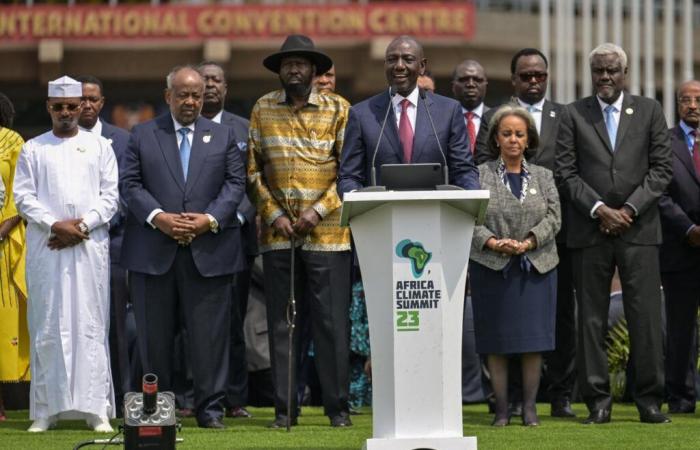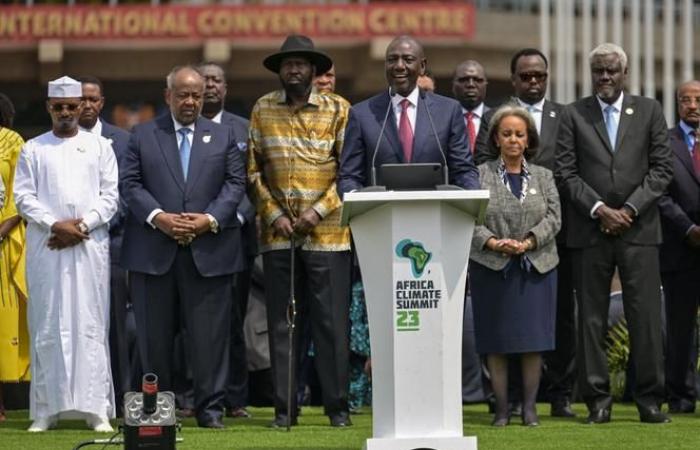Around thirty African heads of state and government will speak in Baku (Azerbaijan) on Tuesday 12 and Wednesday 13 November, the day after the curtain rises for the twenty-ninth Conference of the Parties to the United Nations Framework Convention on climate change (COP29). This “high-level segment”, during which around a hundred leaders will speak in total, is supposed to give political impetus to negotiations which, in addition to an explosive agenda on future financial aid from the North towards developing countries, promise to be difficult with the election of Donald Trump and the probable withdrawal of the United States from the Paris agreement.
Far from boycotting the meeting – like Papua New Guinea, which intends to denounce the uselessness of the UN process – African leaders came in large numbers. Alongside well-known figures, such as Congolese President Denis Sassou-Nguesso, who will speak on the issue of protecting tropical forests, other personalities are expected. In particular the Kenyan President, William Ruto, host in September 2023 in Nairobi of the first African climate summit. His speech on green growth and overcoming the North-South divide reassures industrialized countries, which bear historical responsibility for climate change.
Read also | Article reserved for our subscribers COP29 opens in a geopolitical climate weighed down by the election of Trump and the economic situation
Read later
Beyond national tones, Africa can play its part in the climate arena because its fifty-four countries speak with one voice. Over the years, its diplomats have learned to master extremely technical subjects. “Africa could have blocked the signing of the Paris agreement. She agreed to participate in a process that asks her to participate in the reduction of greenhouse gases without guarantee of compensation, recalls Marta Torres Gunfaus, director of the climate program at the Institute of Sustainable Development and International Relations, in Paris. Its unity has allowed it to push issues, such as that of adaptation, but faced with industrialized countries or large emerging countries, its capacity for influence still remains limited. »
A balance between negotiators
The group of African negotiators, which brings together delegates from each country and has a solid secretariat, is the linchpin of this common position, endorsed before each COP at the level of environment ministers, then heads of state, as was the case in September, on the sidelines of the United Nations General Assembly in New York. If, ultimately, it is the ministers who take the lead on the most difficult subjects in the home stretch of the negotiations, the bulk of the decisions adopted are based on the balance found upstream between negotiators from the 195 member states of the convention.
You have 55.01% of this article left to read. The rest is reserved for subscribers.







